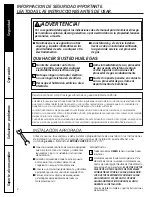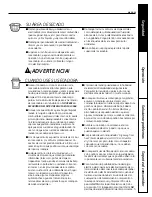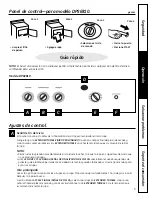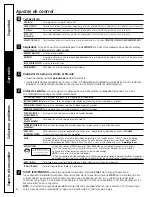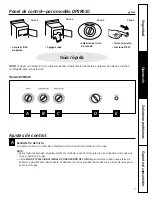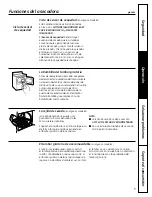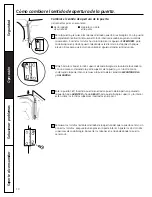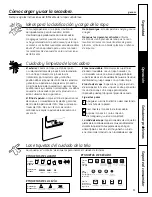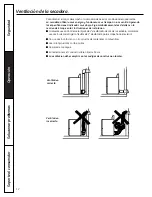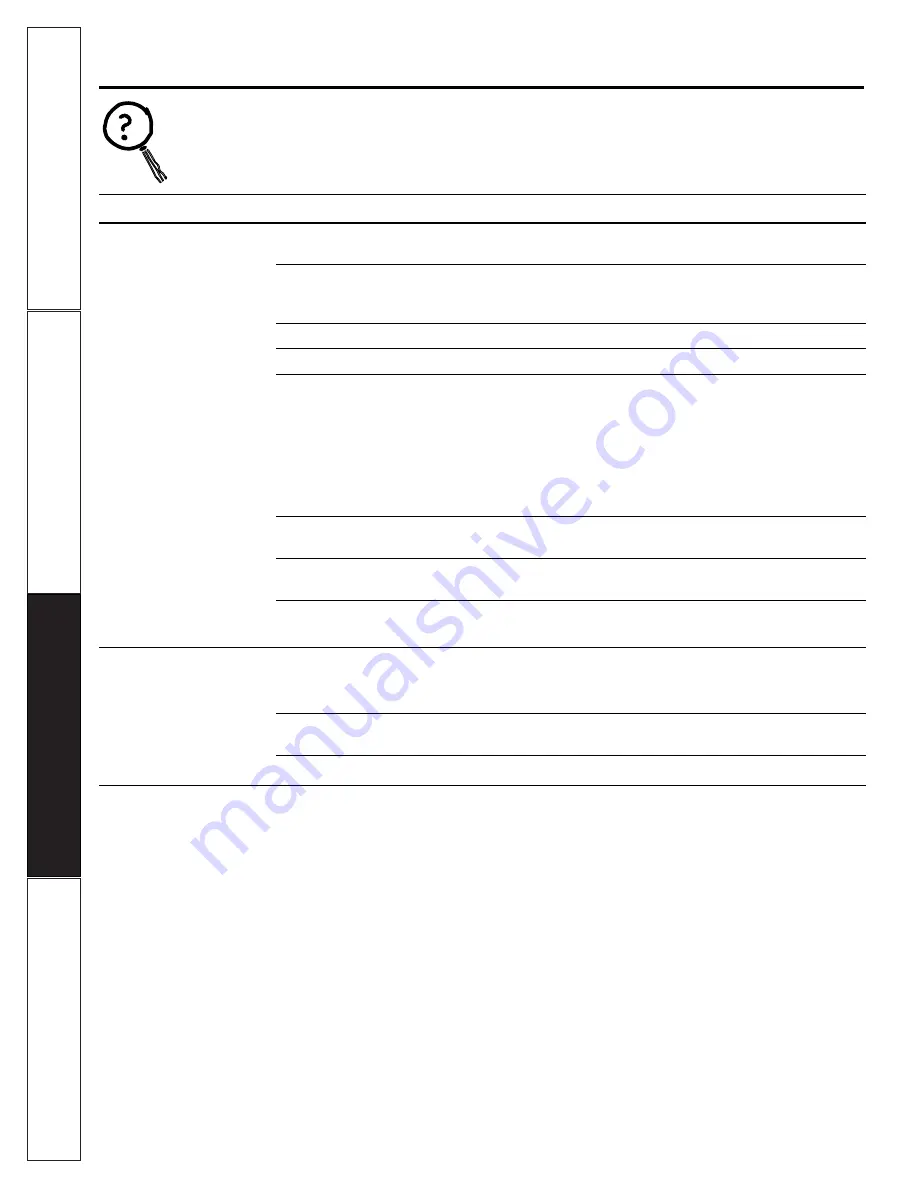
14
Operating
Instructions
Safety
Instructions
Consumer
S
uppor
t
Tr
oubleshooting
T
ips
Before you call for service…
Problem
Possible Causes
What To Do
Clothes take too long
Improper sorting
• Separate heavy items from lightweight items (generally,
to dry
a well-sorted washer load is a well-sorted dryer load).
Large loads of heavy fabrics
• Large, heavy fabrics contain more moisture and take
(like beach towels)
longer to dry. Separate large, heavy fabrics into smaller
loads to speed drying time.
Controls improperly set
• Match control settings to the load you are drying.
Lint filter is full
• Clean lint filter before every load.
Improper or obstructed
• Check installation instructions for proper
ducting
ducting/venting.
• Make sure ducting is clean, free of kinks and
unobstructed.
• Check to see if outside wall damper operates easily.
• Check the Installation Instructions to make sure the
dryer venting is correct.
Blown fuses or tripped
• Replace fuses or reset circuit breakers. Since most dryers
circuit breaker
use 2 fuses/breakers, make sure both are operating.
Overloading/combining loads
• Do not put more than one washer load in the dryer at
a time.
Underloading
• If you are drying only one or two items, add a few items
to ensure proper tumbling.
Clothes are wrinkled
Overdrying
• Select a shorter drying time.
• Remove items while they still hold a slight amount of
moisture. Select a
LESS DRY
or
DAMP DRY
setting.
Letting items sit in dryer
• Remove items when cycle ends and fold or hang
after cycle ends
immediately.
Overloading
• Separate large loads into smaller ones.
Clothes shrink
Some fabrics will naturally shrink
• To avoid shrinkage, follow garment care labels exactly.
when washed. Others can be
safely washed, but will shrink
• Some items may be pressed back into shape after drying.
in the dryer
• If you are concerned about shrinkage in a particular
item, do not machine wash or tumble dry it.


















